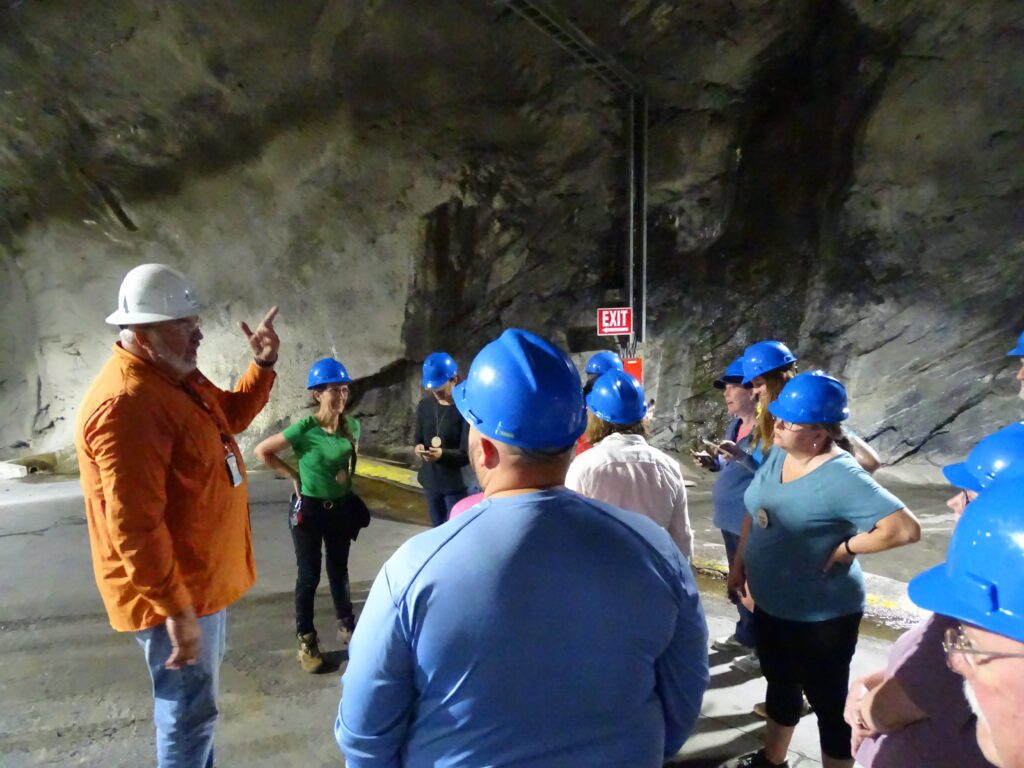A group of K-12 teachers from across the Upstate took a field trip to learn about wildlife and land management ecology from Clemson faculty, thanks to a grant from the Duke Energy Foundation.
Fourteen teachers from schools in Oconee, Pickens, Anderson and Greenville counties participated in the workshop June 12-15 at Duke Energy’s Bad Creek Outdoor Classroom. The teachers studied several ecosystems, learned about the natural history of the Jocassee Gorges, discussed methods used to research different types of animals and toured the Bad Creek hydroelectric facility. Each participant received more than $300 worth of books and materials to use in their classrooms to help them teach about wildlife and ecology.

The workshop was organized by Barbara Speziale, associate director of the Watt Family Innovation Center and professor of biological sciences, and taught by Mallory Maher, Oconee County Clemson Extension agent; Skip Still, retired bear biologist from the S.C. Department of Natural Resources; John Hains, associate professor emeritus of biological sciences; and Allan Boggs, civil and regulatory supervisor for Duke Energy.
Speziale said Clemson and Duke Energy have been working together to host these kinds of programs for teachers since 2012.
“The goal was to give K-12 teachers an opportunity to experience the natural environment in the context of learning how societal needs — such as energy — and conservation can co-exist. I am grateful to the Duke Energy Foundation for supporting these efforts,” she said.
“Teachers have a lot on their plates, and I want to help them in any way possible to aid them in the classroom and connect them and their students to the natural world,” said Maher. “That is why the Bad Creek Workshop is so valuable to teachers. It gives them ideas and lessons that they can take from real world experiences and use them in their own classrooms.”

“Environmental education is a key focus for the Duke Energy Foundation,” said Amanda Dow, Manager of Corporate Giving for Duke Energy South Carolina. “These sessions at Bad Creek give teachers real-world experiences in ecology and conservation that they can then bring back to the classroom. Prioritizing this kind of environmentally engaged education is critical to our state’s sustainable future.”
“This was the best professional development that I have ever attended. It was perfectly balanced between hands-on applicable activities and lecture,” said Cynthia Wanser, a teacher at Nevitt Forest Elementary School in Anderson who participated in the workshop. “I left with a variety of ideas of ways to give my students similar opportunities in my classroom to open their eyes to the world around them in a new way.”
Get in touch and we will connect you with the author or another expert.
Or email us at news@clemson.edu

